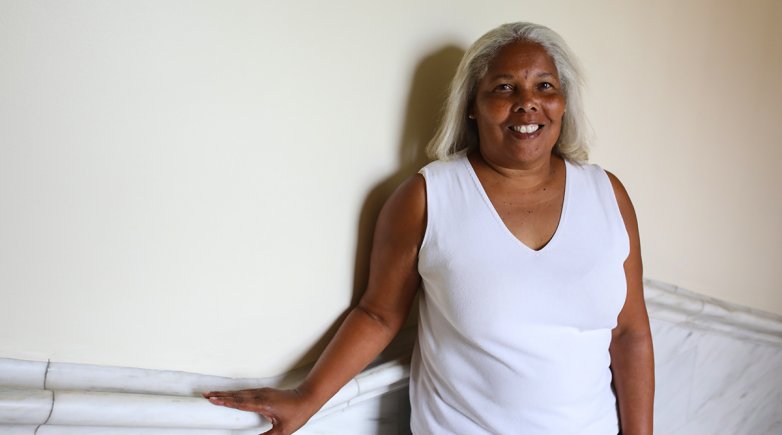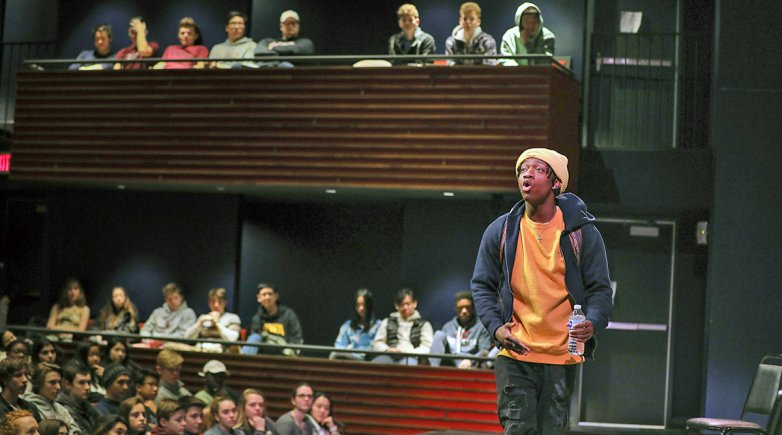Our Sexual Assault Prevention and Response Program for students is a layered, integrated effort to educate and prevent instances of sexual misconduct, including assault and harassment. Current initiatives in the area of student health and well-being, as well as long-standing school policies, are at the core of our efforts.
Through this program, we strive to create resonant classes, workshops, and events (assemblies, awareness activities and discussions) for students at each grade level that help them understand how to handle sexual situations and inappropriate behavior and seek assistance when needed. Creating a community of care and of respect, we seek to provide our students with the tools to make good decisions that:
- Are consistent with their values
- Respect others
- Build trust
- Strengthen communication
- Reflect understanding of consent
- Protect their health and safety
Collaborating with the Health and Human Development Department and using core social emotional learning (SEL) competencies, our curriculum is guided by Collaborative for Academic, Social, and Emotional Learning (CASEL) five core social and emotional competencies:
Self-awareness: The ability to accurately recognize one’s own emotions, thoughts, and values, and how they influence behavior. The ability to accurately assess one’s strengths and limitations, with a well-grounded sense of confidence, optimism, and a “growth mindset.”
Self-management: The ability to successfully regulate one’s emotions, thoughts and behaviors in different situations – effectively managing stress, controlling impulses, and motivating oneself. The ability to set and work toward personal and academic goals.
Social awareness: The ability to take the perspective of and empathize with others, including those from diverse backgrounds and cultures. The ability to understand social and ethical norms for behavior and to recognize family, school and community resources and supports.
Relationship skills: The ability to establish and maintain healthy and rewarding relationships with diverse individuals and groups. The ability to communicate clearly, listen well, cooperate with others, resist inappropriate social pressure, negotiate conflict constructively, and seek and offer help when needed.
Responsible decision-making: The ability to make constructive choices about personal behavior and social interactions based on ethical standards, safety concerns and social norms. The realistic evaluation of consequences of various actions, and a consideration of the well-being of oneself and others.
Curriculum content by grade level
Prep/new students curriculum will orientate students to Phillips Exeter Academy policy/practice on affirmative consent; develop knowledge about healthy and unhealthy relationships; teach about the scope of sexual and relationship violence; develop and strengthen skills on communication with peers, adults and resources regarding sexual misconduct.
Lower curriculum will assist students in continuing to learn about healthy and unhealthy relationships and the scope of sexual and relationship violence. Our curriculum touches on the role that technology (social media) and scapegoats, like alcohol, can play in these relationships, as well as the signs and impact of emotional abuse on an individual.
Upper curriculum will assist students in learning about being a bystander who has the opportunity to provide assistance, do nothing or contribute to negative behavior. Our curriculum continues to touch on student understanding of the scope of sexual and relationship violence, recognize situations, understand PEA culture, learn strategies and practice scenarios.
Senior curriculum will assist students in learning about dating violence, being a bystander and decision-making in these situations.
Guest speakers
In the last few years speakers and presentations have included:
Rachael Denhollander, attorney, author, advocate and educator who is recognized as a leading voice on the topic of sexual abuse. She is also the first woman to pursue criminal charges and speak publicly against USA Gymnastics' team doctor Larry Nassar.
“Now That We’re Men, the Play,” by Katie Cappiello, was enacted in a raw and compassionate all-school performance that interrogated the clashing forces that shape boys into men. It investigated what gives rise to cultural influences around toxic masculinity. The play, instead, called for a culture in which boys can be, and help others to be, their genuine selves, and allow them to speak openly and honestly about respect, empathy, and emotion.
Mike Domitrz of The Center for Respect spoke to students about SAFER Choices regarding consent, respect in relationships, boundaries, bystander interventions and working to reduce sexual assault.
Byron Hurt, author of “Gender Violence, Masculinity, Race, and Popular Culture,” spoke at assembly.
These speakers spent additional time with students in classrooms, affording an opportunity for follow-up discussions.



